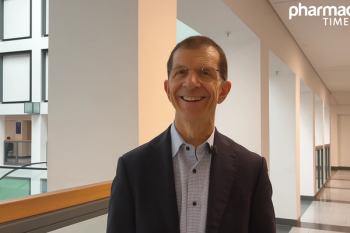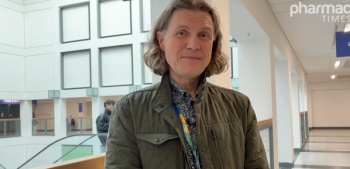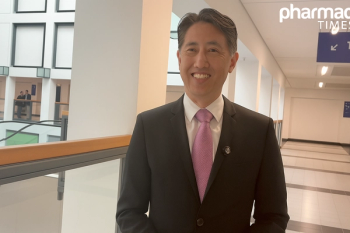
Oncology


Expanding lung cancer screening to an age-based model significantly enhances early detection, potentially saving over 26,000 lives annually in the US.

Research funding disruptions at the National Institutes of Health (NIH) impact clinical trials, threatening treatment options for patients and highlighting the critical role of pharmacists in care continuity.

High-dose busulfan-melphalan enhances VRd therapy, improving progression-free survival in high-risk multiple myeloma patients undergoing ASCT.

CAR T-cell therapy shows promise for treating HER2-positive breast cancer with CNS metastases, offering a novel approach to improve patient outcomes.

The FDA approved durvalumab with FLOT chemotherapy, revolutionizing treatment for early gastric and gastroesophageal junction cancers, enhancing survival rates.

The combination has the potential to redefine the standard of care for a population that previously had limited therapeutic avenues.

New studies reveal a modest, temporary increase in breast cancer risk linked to hormonal contraceptives, emphasizing the need for informed patient counseling.

Advanced IHC assays enhance HER2-low breast cancer detection, improving treatment eligibility for trastuzumab deruxtecan.

The biosimilars can be used to treat osteoporosis and cancer-related bone loss in certain populations.

The approval is based on results from the phase 3 DeLLphi-304 clinical trial.

FDA approves daratumumab and hyaluronidase for treating newly diagnosed light chain (AL) amyloidosis, enhancing survival rates and treatment efficacy.

The FDA accelerates approval of sevabertinib for advanced non–small cell lung cancer, showcasing promising efficacy and manageable safety in clinical trials.

Routine multicancer early detection tests significantly improve early cancer diagnoses, reducing late-stage cases and enhancing treatment outcomes.

Epcoritamab-bysp demonstrated impressive response rates and improved progression-free survival.

Neladalkib offers durable responses and reduced side effects in TKI-pretreated patients.

Mount Sinai's study uncovers how ciltacabtagene autoleucel enhances long-term remission in multiple myeloma by leveraging the patient's immune response.


Danny Rischin, MD, reviews findings from the C-POST trial.

Thor Halfdanarson, MD, outlines real-world challenges in radiopharmaceutical production and delivery and highlights key questions for upcoming trials, including alpha vs beta emitters and long-term toxicity.

Patients with non–small cell lung cancer (NSCLC) had an objective response rate of about 77%.

SHR-A1811 is a novel HER2-targeting ADC comprised of trastuzumab linked to a topoisomerase I inhibitor payload via a cleavable linker.

Scott Tagawa, MD, professor of medicine and urology at Weill Cornell Medicine, discusses safety and tolerability findings observed to date, renal and hematologic considerations, and the role of pharmacists.

The FDA approves Poherdy, a new biosimilar to Perjeta, enhancing treatment options for HER2+ breast cancer patients with affordability and efficacy.

Ziftomenib gains FDA approval as a targeted treatment for relapsed acute myeloid leukemia with NPM1 mutations, offering new hope for patients.

CAR T-cell therapy revolutionizes cancer treatment but poses significant financial and logistical burdens, impacting patient access and outcomes.

Giredestrant and everolimus show significant survival benefits for ER-positive, HER2-negative advanced breast cancer post-CDK4/6 therapy.

New research highlights the benefits of combining lutetium PSMA 617 with standard treatments, showing improved outcomes for prostate cancer patients.

Talquetamab shows promising efficacy in heavily pretreated patients with relapsed/refractory multiple myeloma, reinforcing its role in advanced treatment strategies.

SHR-A1811 shows significant antitumor activity in early-stage HER2+ breast cancer, both alone and with pyrotinib, promising improved treatment outcomes.
